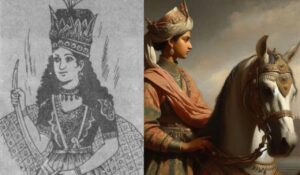Wild Chimpanzee Menopause: New Discovery in Primate Lifespans

In a groundbreaking study, researchers have unearthed the first concrete evidence of wild female chimpanzees experiencing menopause, shedding light on the fascinating phenomenon of post-fertility in the animal kingdom. The study, conducted at Kibale National Park in western Uganda, observed 185 female chimpanzees from 1995 to 2016, revealing a significant decline in fertility after the age of 30 and no observed births after the age of 50.
This discovery challenges the notion that there is nothing new to learn about these primates. Kevin Langergraber, the senior author of the study from Arizona State University, emphasized that the research dispels this misconception and underscores the complex nature of chimpanzee life.
The researchers not only examined fertility and mortality rates but also analyzed urine samples from 66 female chimpanzees. Their findings demonstrated similarities between chimpanzee and human menopause, including an increase in follicle-stimulating and ovulating hormones and a decrease in ovarian steroid hormones such as estrogens and progestins. These hormonal changes in chimpanzees mirrored those seen in humans.
Remarkably, the study found that female chimpanzees in the Ngogo community experience a menopausal shift akin to humans, commencing around the age of 50. This outcome challenges the notion that menopause is unique to humans and some toothed whales.
One notable aspect of this discovery is that it occurred within a social system that lacks grandparental support, dispelling the grandmother hypothesis. The researchers emphasized that menopause and post-fertility survival are not exclusive to human evolutionary history and can emerge in various species and ecological conditions.
The study also revealed that, like humans, female chimpanzees often live beyond the age of 50. For instance, a chimpanzee that reaches adulthood at 14 will be post-reproductive for approximately one-fifth of her adult life, which is about half the duration of post-fertility life for a human hunter-gatherer.
These findings have significant implications for understanding the evolution of human life history and suggest that menopause and post-fertility survival may be influenced by ecological factors such as diet and predation risks. This research illuminates the complexity of chimpanzee social structures and their parallels with aspects of human biology, challenging preconceived notions about the uniqueness of menopause.
Re-reported from the article originally published in The Wio News









